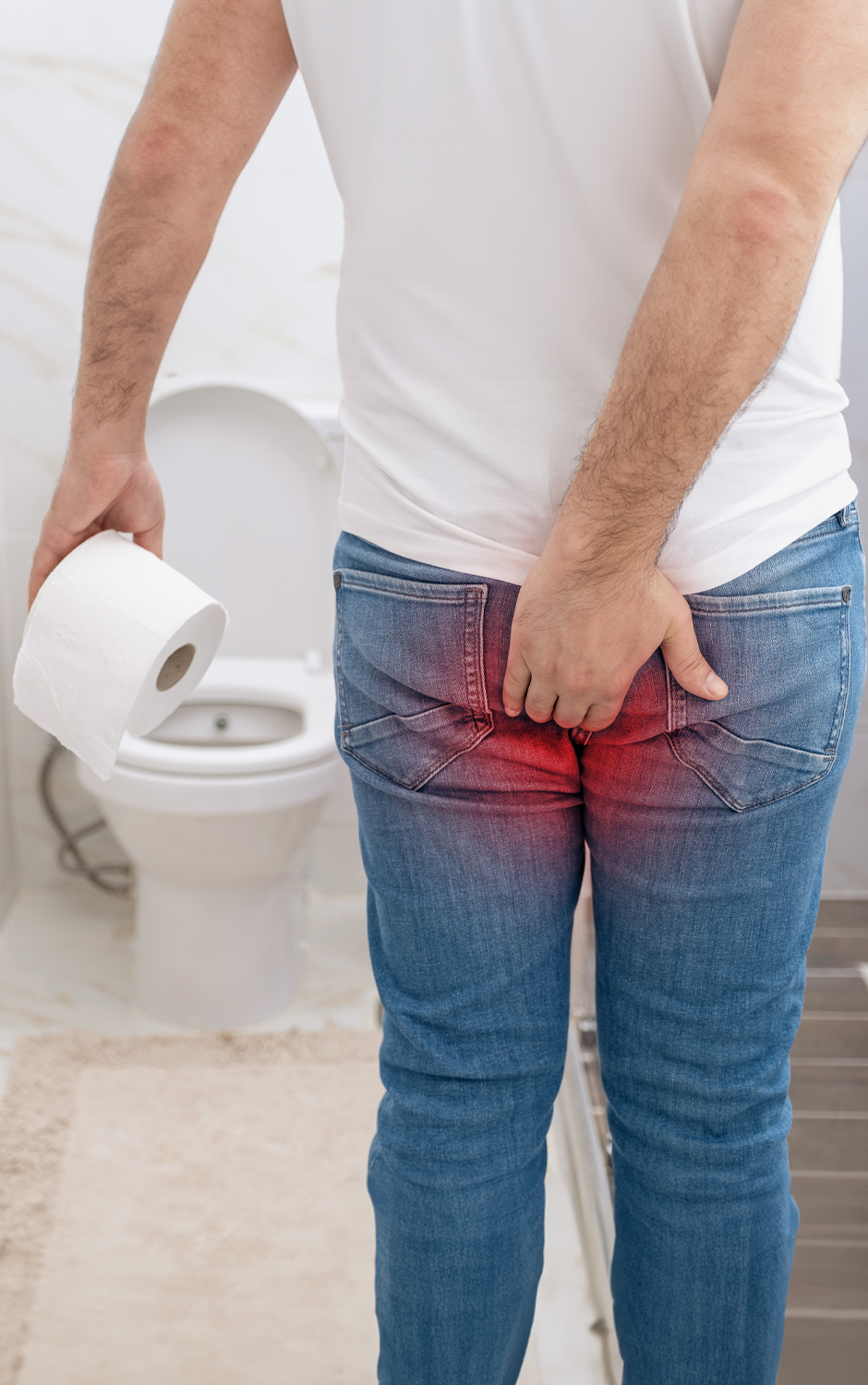Men’s Health

PHYSIO DOWN UNDER SERVICES
At Physio Down Under, we have specialist physios who are trained to assess and treat male pelvic health conditions. Above all, we understand this is a sensitive area and topic. Our therapists will work with you to ensure you are comfortable and informed about your condition and treatment.
Pelvic floor physiotherapy is similar to other types of physiotherapy. Firstly, your physiotherapist will begin by learning about you. You will discuss your past medical history, your current lifestyle, symptoms, and your goals. Secondly, your physiotherapist will watch you move and test your strength and mobility. Your physiotherapist may recommend an internal exam to test your pelvic floor muscles, but it is never mandatory. Thirdly, your physiotherapist will discuss their findings and collaborate with you on a plan of care. Treatment plans usually consist of exercises, education, and building helpful habits. Pelvic floor muscle rehabilitation may involve pelvic floor muscle relaxation and releases or targeted strengthening, depending on your symptoms and your physiotherapist’ findings. They will go through exercises with you and may send you an email with exercise videos so you can continue your therapy at home. In conclusion, we want you to leave physiotherapy feeling comfortable, confident, and educated about your condition.
The following are common men’s health conditions that a pelvic floor physiotherapist can assess and treat:

Bladder Health
Incontinence certainly affects men and can include symptoms of urinary frequency and urinary urgency. Evidence indicates that men’s incontinence can be overcome effectively. It is essential men know how to perform pelvic floor muscle contractions correctly and understand how frequently and intensely they need to undertake them to achieve the best results.
Types of bladder concerns we treat include:
- Urinary Leakage/ Incontinence — Involuntary loss of urine
- Urgency and Frequency — An uncontrollable and bothersome, sensation to urinate
- Incomplete/ Slow or Painful Urination
- Post Urination Dribble
- Nocturia — A frequent need to urinate at night time which disturbs your sleep
Bowel Health
Having healthy bowel habits means generally you will have well-formed soft and easily passed bowel motions anywhere from between 1-3 times per day up to 3 times per week. This is considered regular. You should be able to hold on for a short time, do a poo within a short time of sitting on the toilet, without straining or pain and be able to feel empty.
Bowel conditions our men’s health physiotherapists can treat include:
- Defecation Dyssynergia Pubococcygeus Paradoxicus, Puborectalis paradoxicus — This happens when the muscles and nerves in the pelvic floor fail to coordinate correctly to have a bowel movement (pelvic floor dysfunction). It can cause or be caused by chronic constipation/ habits of withholding defecation.
- Urgency — An uncontrollable sensation to pass motion
- Constipation — Fewer than 3 bowel movements a week, stools that are hard to pass and a chronic need to strain
- Faecal Incontinence / Staining — Involuntary loss of bowel matter, iIncluding LARS (Low Anterior Resection Syndrome), post colorectal/ rectal cancer management
- Flatus Incontinence — Involuntary loss of wind/ gas
- Anal Pain – Pain in the anus related to bowel movements or daily activities like sitting
- Irritable Bowel Syndrome (IBS) – Abdominal bloating and discomfort related to defecation
- Rectal related surgery rehab - Piles surgery (haemorrhoidectomy), rectal prolapse, pelvic floor repair rehabilitation


Pelvic Pain Rehabilitation
Pelvic pain is defined as pain anywhere between your belly button and sitting bones. If pelvic pain lasts for more than 6 months, it’s called persistent or chronic pelvic pain.
More commonly we see men with pain in their perineum, groin, hips, back , scrotum and testes during urination, defecation or ejaculation.
Common pelvic pain conditions include but are not limited to:
- Chronic Pelvic Pain Syndrome (CPPS), previously known as chronic nonbacterial prostatitis is a condition with long-term pelvic pain without evidence of a bacterial infection. Stress, nerve irritation, injuries or past urinary tract infections are often common findings in patients with CPPS.
- Bladder Pain Syndrome / Interstitial Cystitis— A chronic condition causing bladder pressure, bladder pain, high urinary urgency and sometimes pelvic pain in the absence of a bacterial infection.
- Pudendal Neuralgia — Pain anywhere along the pudendal nerve pathway: from the sacrum (base of your spine) to the pubic bone. Often there is pain and/or altered sensation in the penis, scrotum, perineum and/or rectum. Men sometimes describe a sensation as if they are ‘sitting on a rock’ or feeling a burning, electric shock, shooting, aching, itch or a raw feeling in their penis, urethra, perineum, anus or rectum.
Surgical Pre and Post Rehabilitation
- Prostatectomy (full or partial removal of the prostate) — Pelvic floor muscle exercise prescription for urinary continence and erectile function.
- Benign prostate hyperplasia (BPH related surgeries)
- Abdominal surgeries and its associated weakness / post operative pains
- Inguinal and / or abdominal hernia repair
- Post-vasectomy pain / pelvic floor dysfunction
- Post- varicocele surgical pain / pelvic floor dysfunction
- Post venous leak surgery (pelvic congestion syndrome)


Penile/ Scrotal Rehabilitation
- Erectile dysfunctions— positional dependent erectile strength, premature ejaculation, hard/flaccid syndrome .
- Pain during ejaculation and/or erection
- Post-surgical erectile dysfunction (ie. post-prostatectomy)
Erectile dysfunction is the inability to achieve or maintain an erection. You might have trouble getting hard or lose an erection during intercourse. It can be mild, moderate, or severe, and doesn’t always mean that you can never get an erection.
Types of erectile dysfunction that respond to physiotherapy are those that only occur in certain situations and with men that still have nocturnal erections, men with position/ movement dependent erectile dysfunction (erection that changes with different positions).
What to expect during a physiotherapy session for erectile dysfunction:
- Your physio will perform a comprehensive screening for any medical conditions/ physical/ lifestyle/ mental factors that could be contributing to your condition
- Assess your spine, genitalia, pelvic floor function, rib cage, breathing ,hips, nerve sensation and function
- Explain and discuss the findings and whether further investigations or a referral to specialist is recommended
- Suggest and prescribe exercise, manual therapy and lifestyle modifications targeted to resolve the erectile dysfunction
Physio Down Under Pte Ltd
Address
491B River Valley Road
Valley Point (Office Tower)
Unit #04-01A
Singapore
248373
© Copyright 2024 | All Rights Reserved | Physio Down Under | Privacy Policy
